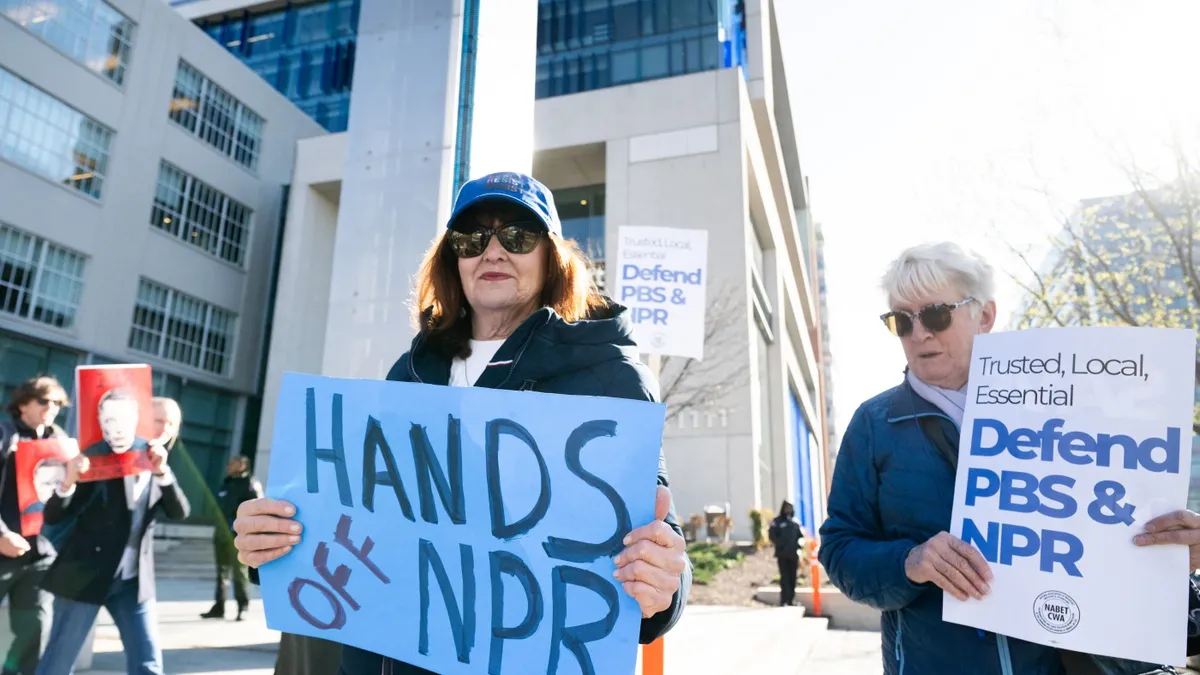
In a recent hearing, members of the Senate Appropriations Committee, both Democrats and Republicans, strongly opposed the Trump administration's proposal to eliminate $9 billion in federal funding already approved by Congress. This funding primarily supports public broadcasting and critical international aid programs.
President Trump's request to Congress, submitted last month, justified these cuts by claiming that the targeted foreign aid programs were contrary to American interests. He also criticized federal spending on the Corporation for Public Broadcasting, labeling it as politically biased and an unnecessary expense for taxpayers. During the hearing, Maine Republican Senator Susan Collins, who chairs the committee, highlighted that approximately 70% of the federal funding earmarked for rescission directly supports local programming and essential emergency communications.
Senator Collins acknowledged the concerns surrounding NPR's news coverage, which has often been perceived as having a partisan slant. However, she suggested that there are more effective approaches to address these biases than completely rescinding all funding for the Corporation for Public Broadcasting.
In response to further inquiries, Office of Management and Budget Director Russell Vought assured that emergency broadcasting services funded by the Corporation for Public Broadcasting would remain intact. He emphasized that the rescission does not apply to the current fiscal year, allowing local stations ample time to adapt. Vought urged these stations to be more discerning about content expenses.
Alaska Republican Senator Lisa Murkowski, who opposes the cuts, expressed her commitment to collaborating with Vought on funding for rural stations. She provided an overview of the public radio landscape in Alaska, noting that many rural stations rely on federal funding for up to 70% of their budgets. She stressed the vital services these stations provide, stating, "Almost to a number, they're saying that they will go under if public broadcasting funds are no longer available to them."
The Trump administration's proposed cuts total approximately $9.4 billion, primarily aimed at foreign aid programs that address global public health, international disaster assistance, and hunger relief. Among these cuts, nearly $1.1 billion is directed towards future funding for the Corporation for Public Broadcasting.
The Corporation for Public Broadcasting plays a crucial role in funding local public television and radio stations nationwide. Notably, PBS receives about 15% of its annual revenue from the Corporation, while NPR directly obtains about 1%. Additionally, NPR benefits indirectly from funds allocated to member stations that pay for its programming.
The rescission measure narrowly passed the House earlier this month with a vote of 214 to 212. This close result was aided by two key Republican lawmakers who switched their votes at the last minute. Earlier hearings in the House revealed that many Republicans accused PBS and NPR of being "woke" and biased against conservative viewpoints.
Senator Patty Murray of Washington, the leading Democrat on the panel, raised concerns regarding the legality of the White House's request. According to the 1974 Impoundment Control Act, both chambers of Congress must approve such requests by a simple majority within 45 days of submission, which in this case, means by July 18. Murray remarked that cuts to the Corporation for Public Broadcasting would significantly impact over 1,500 local public TV and radio stations, disproportionately affecting rural communities and children.
NPR issued a statement emphasizing the irreplaceable support and infrastructure provided by the Corporation for Public Broadcasting, which enables these noncommercial stations to effectively serve their communities. PBS President and CEO Paula Kerger also affirmed that their work depends on the bipartisan support received from Congress, which has been essential for providing services that commercial media cannot replicate.
During the hearing, Senator Murray pressed Vought about the bipartisan support that both public broadcasting and the global HIV/AIDS program known as PEPFAR have historically enjoyed. Vought responded that while he respects the past support, the administration has identified misuses of funds that do not align with the values of American taxpayers.
With Democrats united against the bill, the White House can afford to lose no more than three Republican votes. Several Republican senators, including Mitch McConnell from Kentucky, expressed doubts about cutting foreign aid programs. McConnell highlighted the importance of U.S. investments in fostering relationships in less democratic countries, stating that reforming how these investments are made could be beneficial.
Collins and other senators expressed frustration over the administration's lack of consultation prior to submitting the rescission request, particularly concerning funding that had already been approved in a continuing resolution signed into law by the president. Collins remarked that the examples of waste cited by the administration were all linked to the Biden administration, emphasizing the need for a more collaborative approach moving forward.